Perhaps you noticed that there was a screwup at the Oscars last night. Faye Dunaway and Warren Beatty announced that “La La Land” had won the Academy Award for Best Picture . . . and then had to backtrack, because there was a mistake. “Moonlight” was the actual winner.
After the mistake, many people behaved graciously. In what has to be the most heartbreaking moment of his career, “La La Land” producer Jordan Horowitz realized he didn’t receive his first Oscar, and then beckoned the producers of “Moonlight” to come on stage. Warren Beatty explained why he’d made the mistake — he’d gotten the wrong envelope.
But who was responsible for the screwup? It was PriceWaterhouseCoopers, the accounting firm that counts the votes and determines the winners.
PriceWaterhouseCooper’s statement is a model apology. Here’s PwC’s statement just after the event...
Get Started for FREE
Sign up with Facebook Sign up with X
I don't have a Facebook or a X account
 Your new post is loading... Your new post is loading...
 Your new post is loading... Your new post is loading...

Kelly Vivian's curator insight,
September 25, 2015 2:10 PM
After the discussions in class about Volkswagen scam, i decided to do a little more research about the situation. At a PR perspective, it will be hard for the company to regain the consumers trust. If I was the PR rep for this company I would start with a public apology. |

Deanna Casey's curator insight,
September 15, 2014 9:54 PM
Urban Outfitters clothing and home goods store has many loyal customers purchasing their unique items and childish style. Although their style and products are well liked among young hipsters, they have always been known for their controversial saying on products. Many people take offense to their blunt choices of prints and designs that contain controversial messages. Recently, in this article by adweek.com, they posted a vintage faded Kent State University sweatshirt with dye blood splatters, or what seemed to be. The company only had one for sale and did not refer to the 1970 anti-war student protesters killed and wounded at the University. Social media took off on this negative advertised product from a company that is constantly looking to be a topic of discussion. Teen Twitter members were furious that the company they purchased from were insensitive to the tragic event in 1970. Urban Outfitters posted an apology that the stains on the shirt were in no way supposed to represent a blood stain or had any connection to the 1970’s shooting event at Kent State University. Social consumers are gathering this negative information about Urban and seeing the hate from many on social media sites, this would lead them to purchase from a competing brand. Urban Outfitters digital identity of the way they represent themselves has been becoming more negative in the past couple years. With their countless articles of clothing with drinking and drugs messages, and their customer base under the age of 21 their reviews on social media have been nothing but negative. I feel that Urban Outfitters wants any sort of media coverage, good or bad. Having the spotlight on them encourages consumers to search the site, and possibly like some of their products. Urban has a fan base of mainly hipsters, which are identified as stepping out of the box and doing things outside the lines, the company is doing the same just in more extreme cases. 
Amanda Wall's curator insight,
September 19, 2014 6:56 PM
Recently in class we were assigned a project where we could choose a for profit on non-profit organization I chose Urban Outfitters, one of the most recent controversial clothing companies in today society.
This article describes how Urban Outfitters is defending there vintage Kent State sweater, however, most people see through the vintage look and see it as nothing more than the tragedy that occurred in 1970. The Ohio National Guard fired on a group of unarmed anti-war student protestors at Kent State, resulting in four deaths and nine wounded. As to be expected people who know the background behind Kent State automatically assume the red "vintage" stains on the sweater is blood stains, whether the stains represents blood or not this specific sweater has respectfully been pulled off the shelves.

Luis V. Morales-Escobar's curator insight,
January 19, 2014 1:54 PM
Este es buenejemplo de analisis de puntos criticos

Hendy Han's curator insight,
September 26, 2013 4:19 AM
This is a great article that includes a great example from previous case from Taco Bell. Publicity fame can be a double edge sword, where company is vulnerable for negative comments. This article provide a lot of great PR techniques that a company could take advantage of. Once a company goes online, they have to understand that a negative publicity can bring down a company so fast. It is important to handle the situation in timely fashion and keep responding in a good way to the customers. When a company goes through social media, it is important not to just leave it as it be. It has to be tracked on how the audiences and customers think about the company. Here, the PR department plays a big role to maintain the company image. A good thing suggested in the company, is to always consider a compesation from a critical mistake that they have done.

Levi Norton's comment,
September 26, 2013 7:42 PM
In response to Hendy, I fully agree that if a company is in a publicity fame companies need to be prepared to respond to dissatisfied customers and reply to them as soon as possible if not the company could pay huge consequences . Great Read

Cindy Navarro's curator insight,
August 29, 2013 1:44 PM
It takes R & R: Relationship & Response to issues. 
Betty Carlin's curator insight,
August 29, 2013 2:23 PM
Great infographic! It's all about having a plan in place BEFORE you need it.

Monica McPherrin's curator insight,
August 29, 2013 8:10 PM
Always have a plan in case of an emergency.

Chris Abalain's curator insight,
August 19, 2013 6:37 PM
Business owners should always be considering what their actions will do for their reputation! 
Brad Dixon's curator insight,
September 9, 2013 6:19 PM
We help companies develop the plan and then procide the system to run it smoothly. Check us out at http://www.reviewwatchman.com

Elaine Li's comment,
August 22, 2013 7:47 AM
Hi, Steven, thank you for share this article. This is article talking about the benefit of using mobile apps for your internal crisis communication. Everyone need communicate with each other. People can communicate with each other through Internet, mobile phone or computer. I agree with Steven’s insight, not everyone have a computer with him or her all the time, but people have smartphone with Internet. Internet is a great tool for lager international organization that has employees all around world. So creating an app designed for company internal communication will let employees to improve their work efficiency. Use mobile apps allow works to contact to their team member at any time, send message and notification at particular time, share image, link and video and this app also can include some unique functions for your business. Using mobile technology for internal crisis communication can bring many benefits for the company and works.

Yujue Wang 1250401's comment,
August 23, 2013 12:24 AM
This is a good insight, mobile phone is getting more and more handy these days especially when everyone has smart phone on them, the internet access become another way of easy and cheap way of communication. We all know how hard and expensive it is to make a call overseas not to mention we have to calculate the time difference, so I totally agree to making a phone app that can help during unpredicted circumstances especially for big business that have companies all over the world. I also agree with the facts that worker need to have effective communications and if a phone call is missed it might delay things for days while a phone apps can hold the information and wait until someone read it when they get a chance. When it comes to internal crisis communication I think a multipurpose phone app can actually bring a lot of benefits for communication in a business.

Gladstone Leslie Samuel, PMP's curator insight,
September 11, 2014 10:24 AM
Mobility is the key in the current context. |








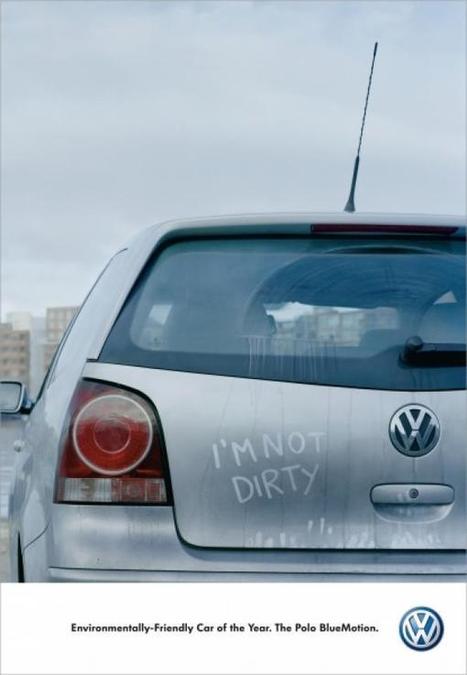



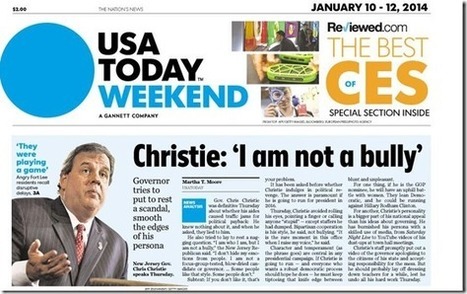




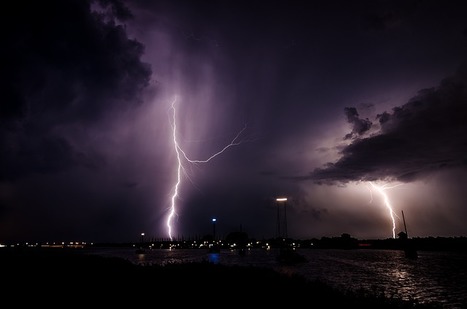



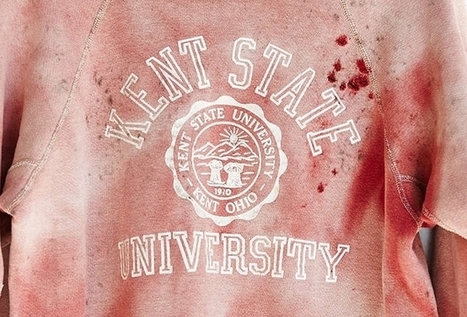

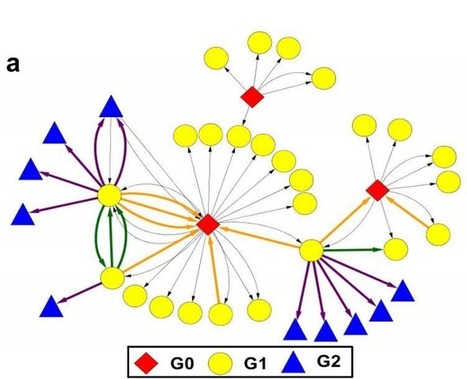










PwC mistake taints the Oscars evening. Josh Bernoff says PwC made a "model apology" but the fact remains, it was a monumental screwup.